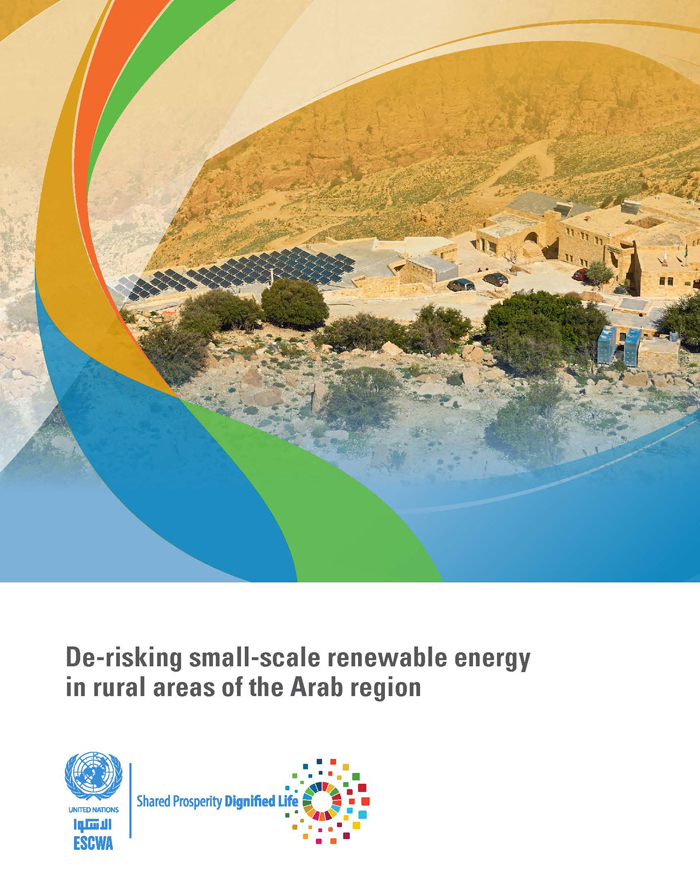
ESCWA Publication: E/ESCWA/SDPD/2017/TOOLKIT.2
Country: Arab region
Publication Type: Information material
Cluster: 2030 Agenda and SDG Coordination
Focus Area: Natural resource sustainability
Initiatives: Water & energy nexus
SDGs: Goal 6: Clean Water and Sanitation, Goal 7: Affordable and Clean Energy
Keywords: Climate change, Desalination, Electricity, Solar energy, Water, Wind power, Capacity building, Renewable energy sources, Wind power, Water supply, Statistical data, Sustainable development, Waste management
Water-energy nexus operational toolkit: Renewable energy module
January 2017
This module was prepared as part of the United Nations Development Account project on developing the capacity of ESCWA Member Countries to address the water and energy nexus for achieving Sustainable Development Goals.
It highlights the utilization of renewable energy (RE) to strengthen the water and energy nexus by providing the power needed by water-related activities such as water distribution and wastewater treatment. RE technologies can also strengthen energy security and diversify national energy mix by providing alternative sources that are less water intensive, availing modern energy services and reducing the dependence on fossil fuel, which contributes to the mitigation of greenhouse gases emissions. These benefits are significant for the Arab countries to meet their growing demand on water and energy and achieve their sustainable development plans.
Related content
Natural resource sustainability
,
This module was prepared as part of the United Nations Development Account project on developing the capacity of ESCWA Member Countries to address the water and energy nexus for achieving Sustainable Development Goals.
It highlights the utilization of renewable energy (RE) to strengthen the water and energy nexus by providing the power needed by water-related activities such as water distribution and wastewater treatment. RE technologies can also strengthen energy security and diversify national energy mix by providing alternative sources that are less water intensive, availing modern energy services and reducing the dependence on fossil fuel, which contributes to the mitigation of greenhouse gases emissions. These benefits are significant for the Arab countries to meet their growing demand on water and energy and achieve their sustainable development plans.



